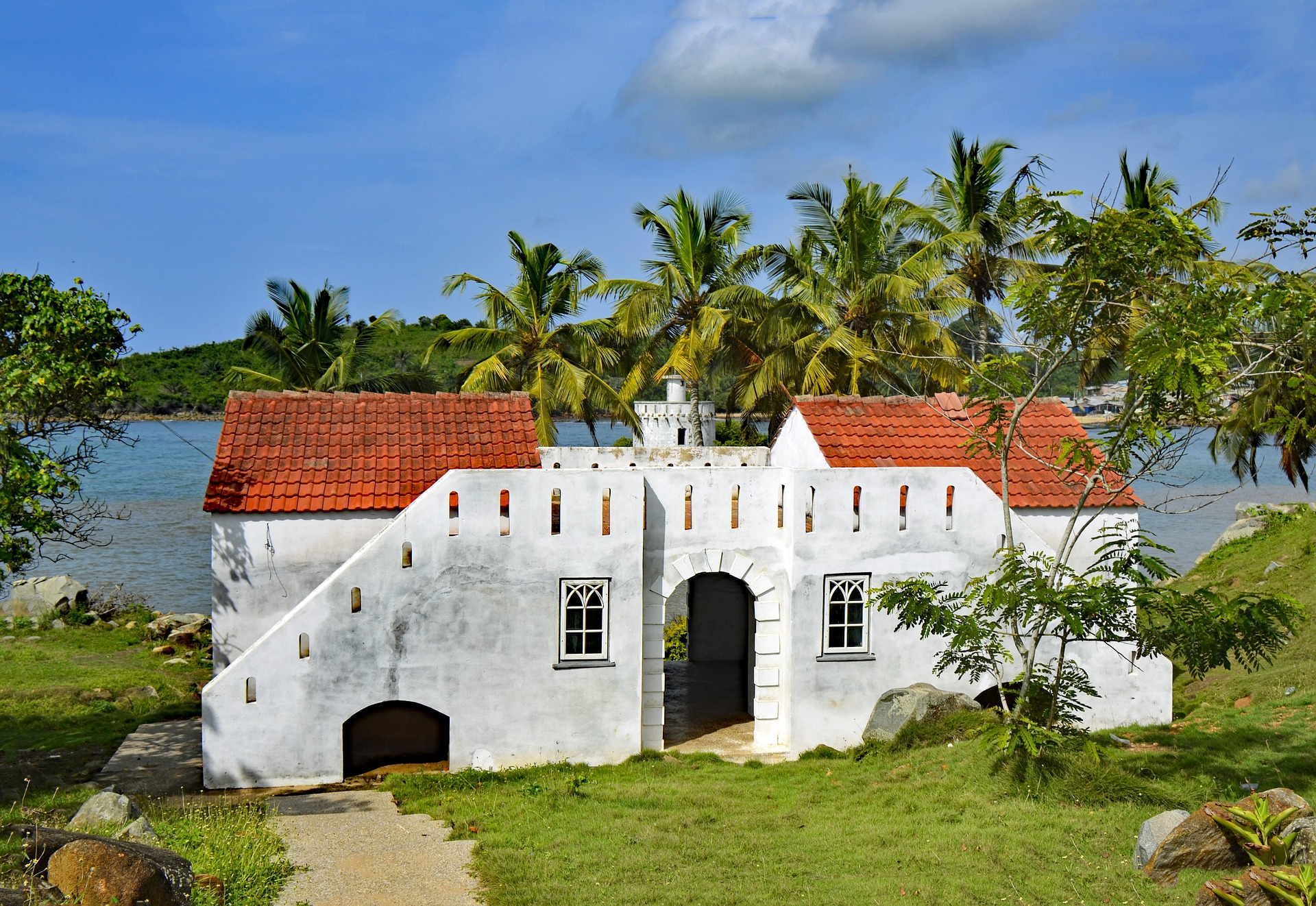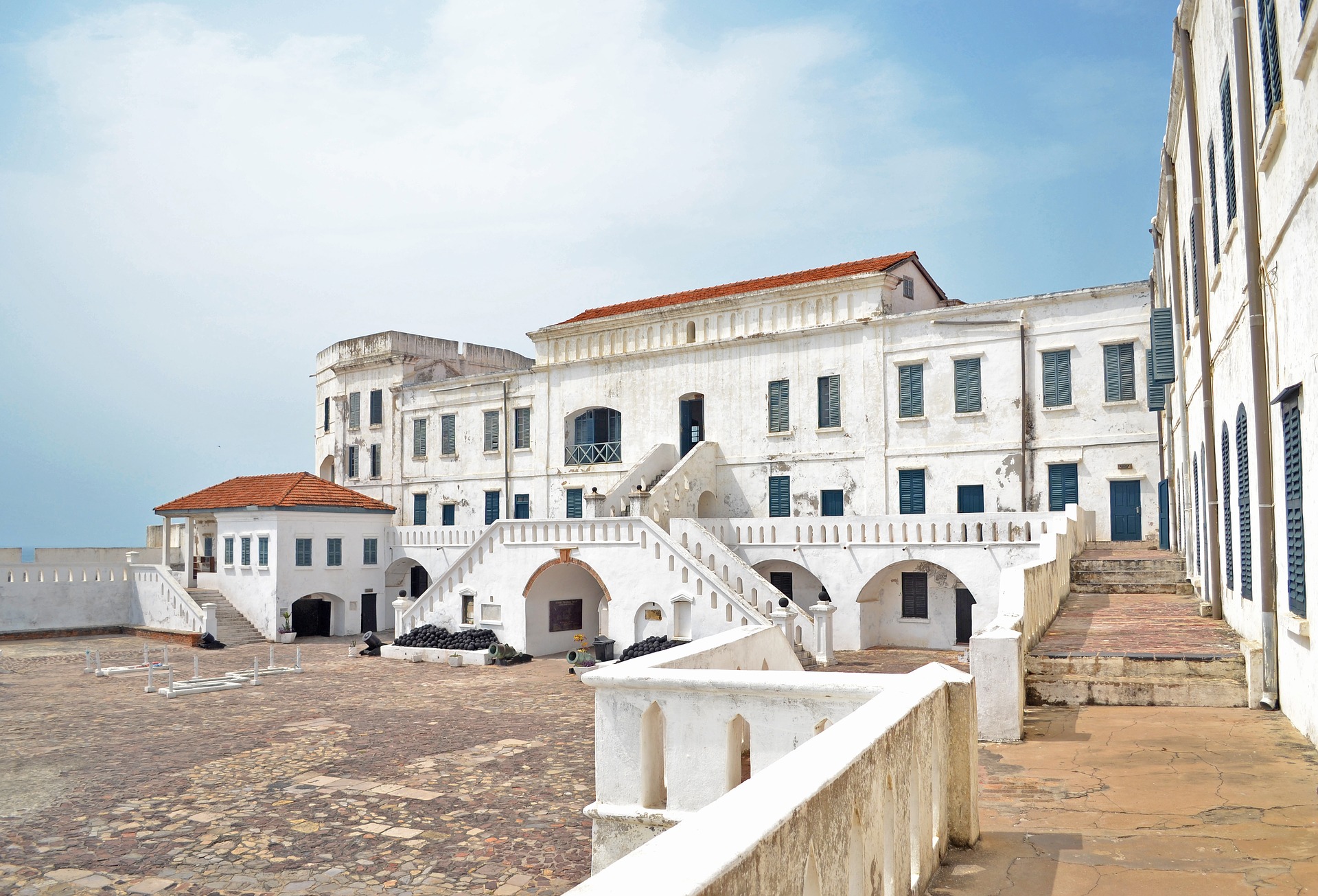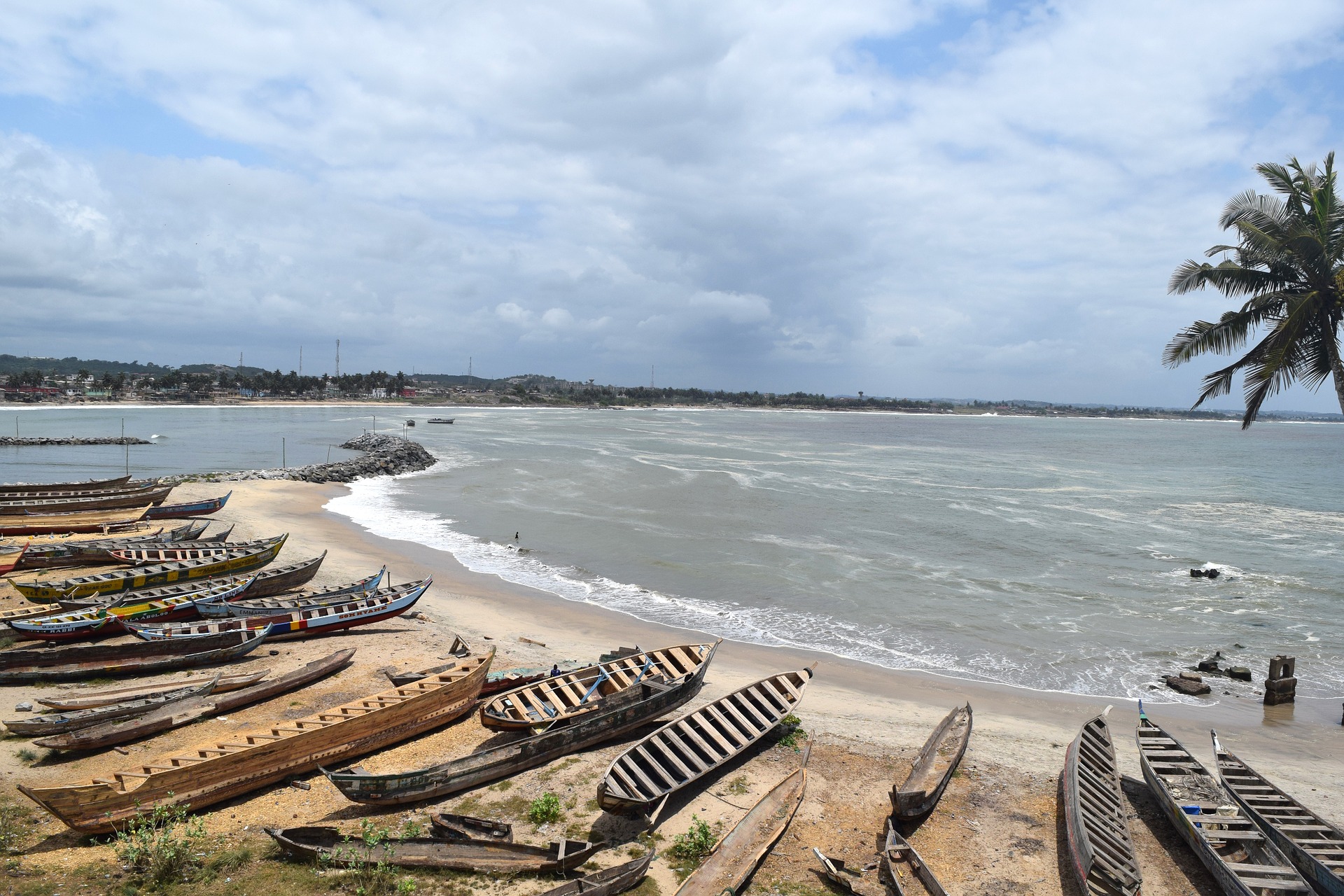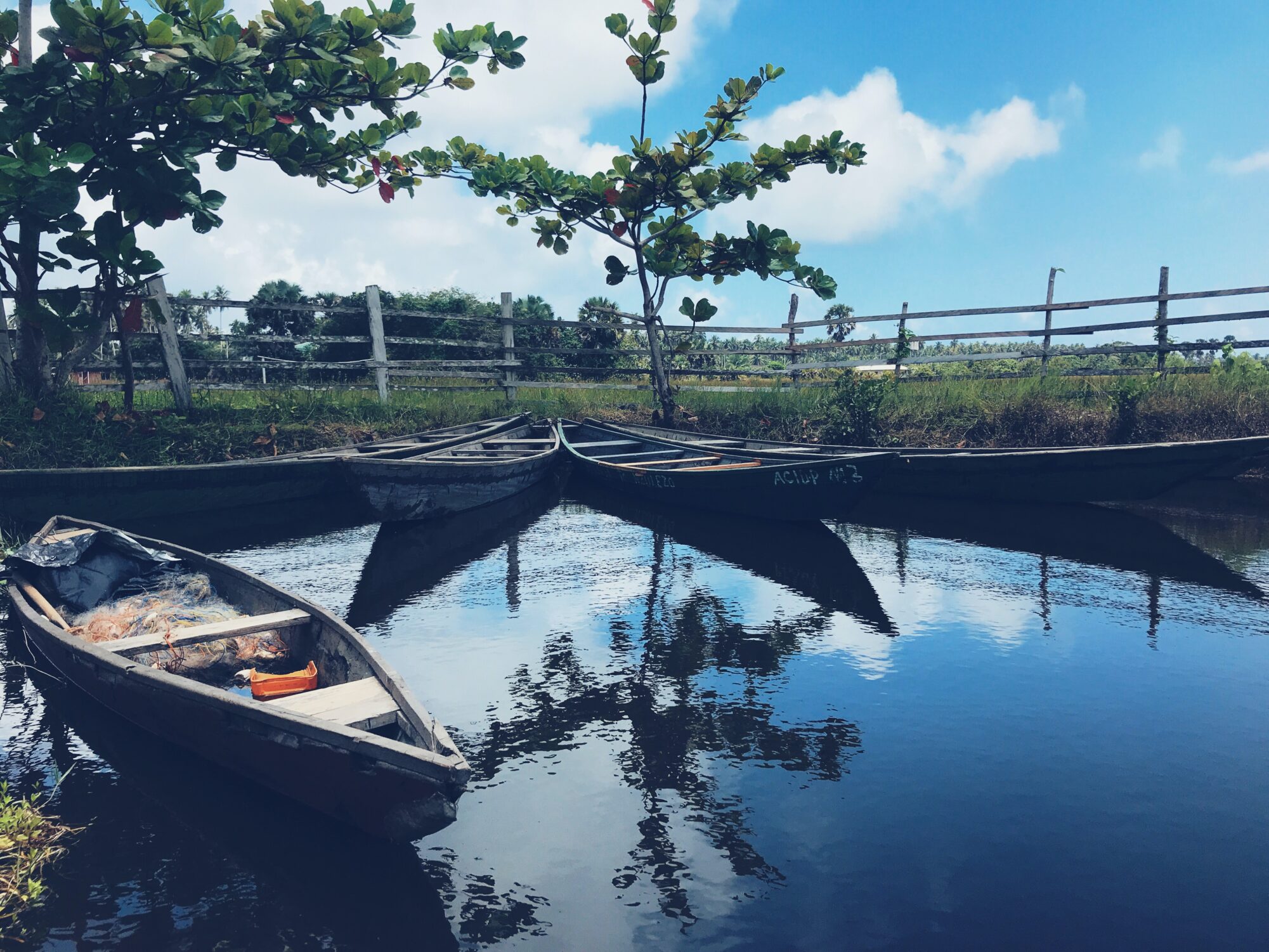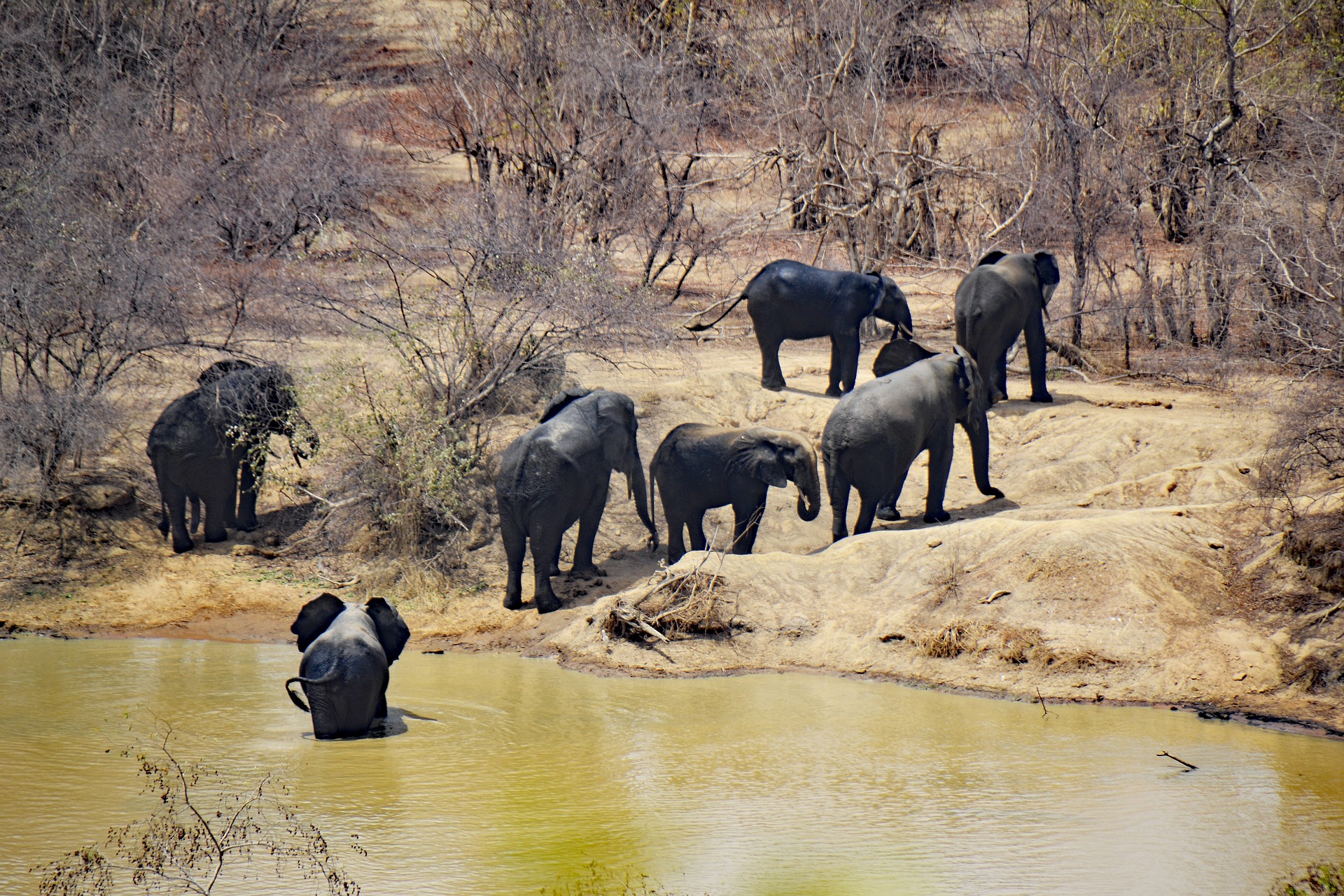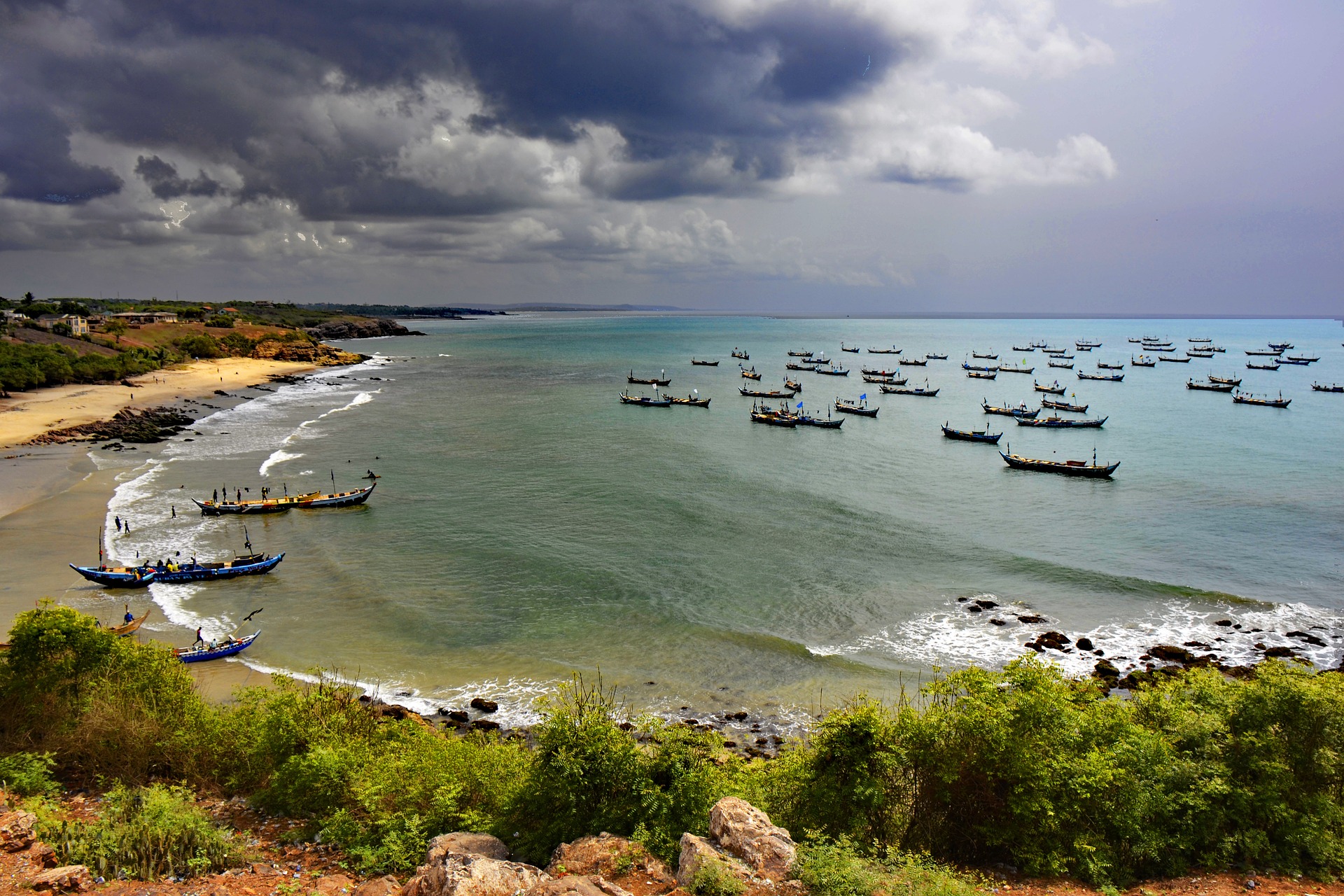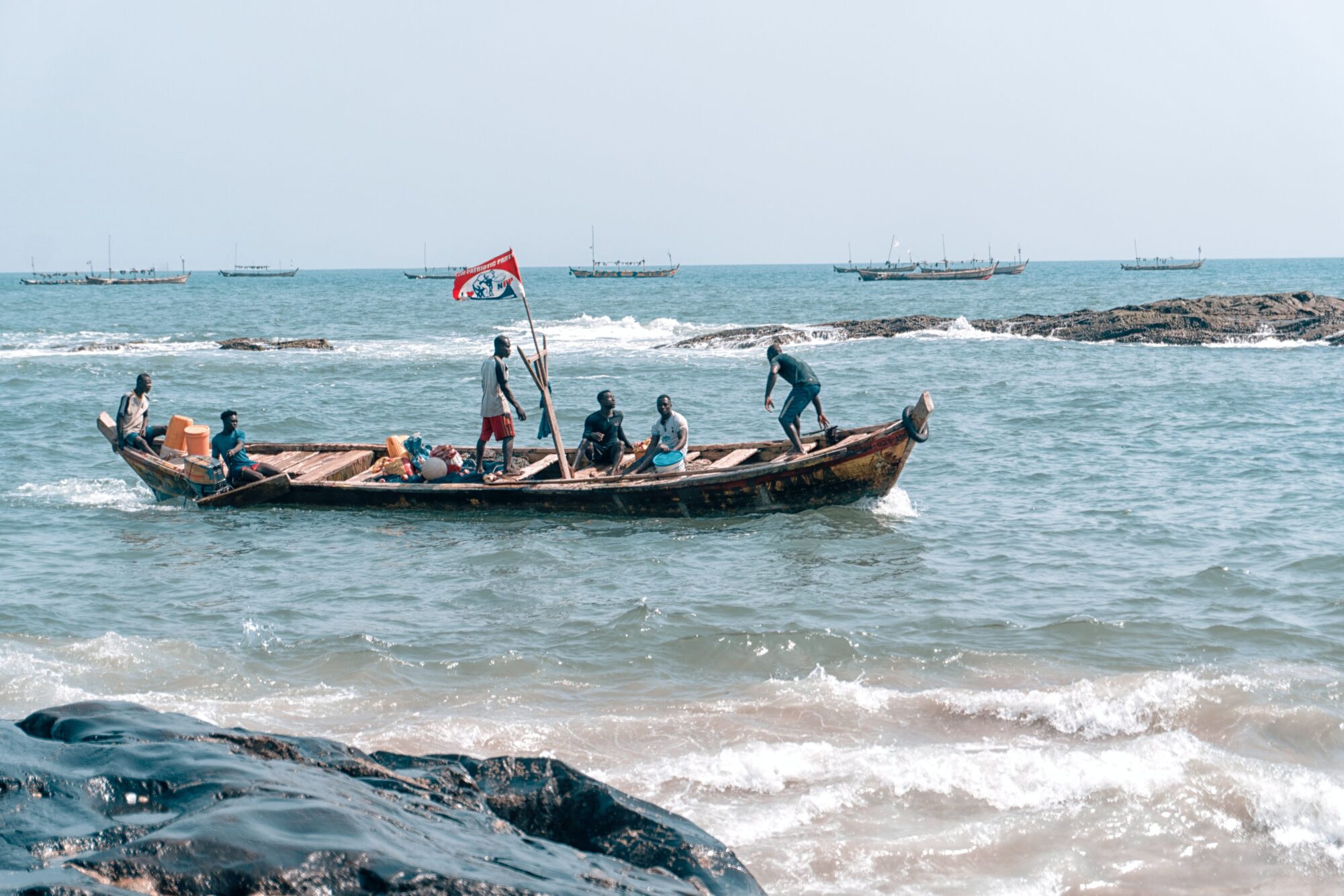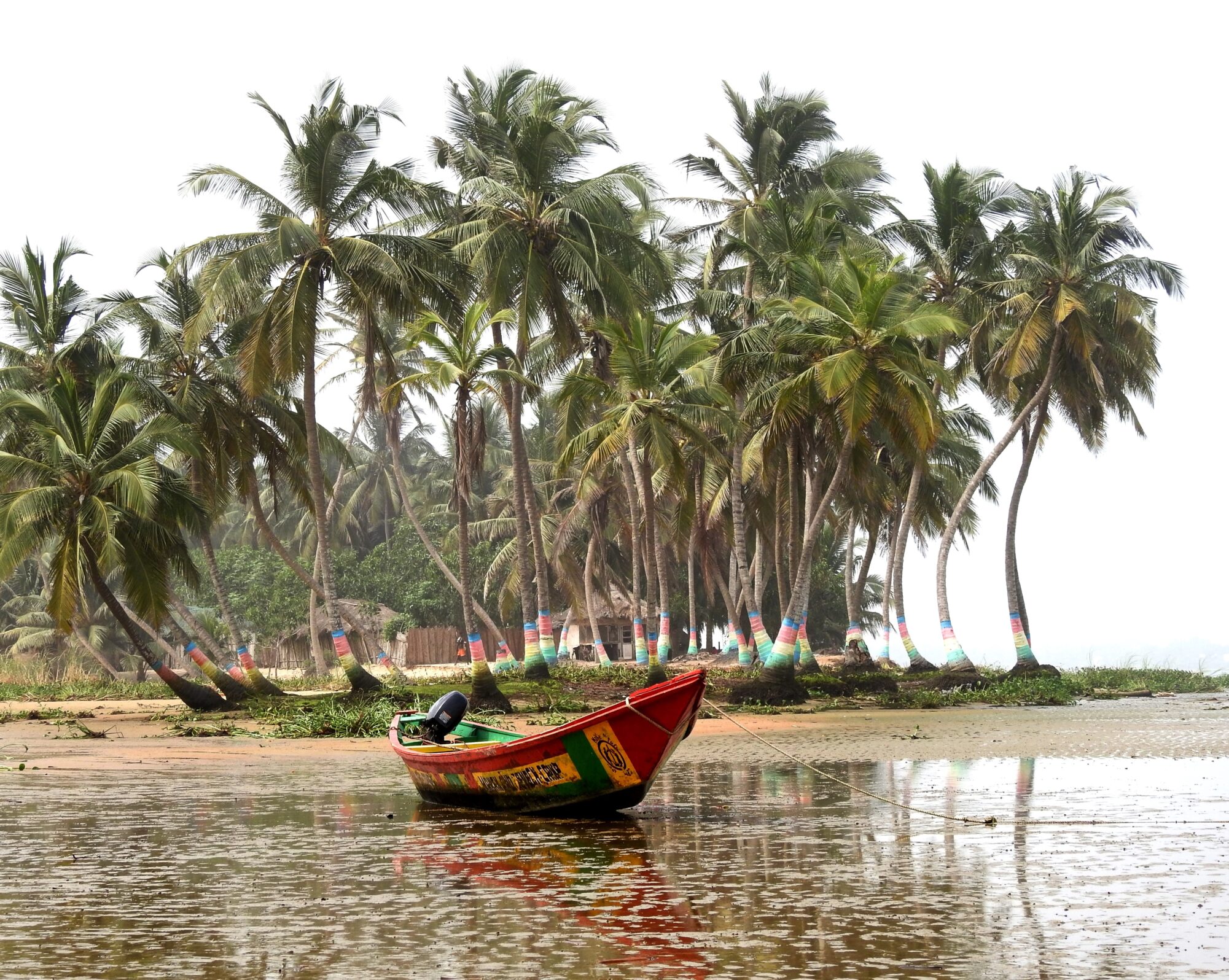Ghana
Travel tips for Ghana
Top 5 Experiences
The former „land of kings“ surprises its visitors with a cultural and natural wealth. The highlights of the country include:

Ashanti
The city of Kumasi is considered the centre of the Ashanti Empire, both historically and spiritually. The king of the Ashanti still sits here today. Significant gold deposits still characterize Ashanti land today. This gold, their statesmanship as well as their warfare made them famous.
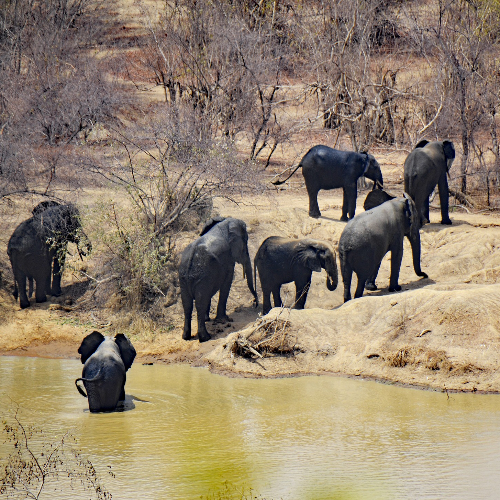
Mole National Park
The country’s largest national park is surrounded by grassland savanna. The over 90 species of animals that live here include elephants, buffaloes, lions, leopards, antelopes, monkeys, as well as reptiles and amphibians. Also, 300 species of birds call the park their home.

Kakum National Park
The tropical rainforest of the national park is home to an impressive plant life. Rare animals such as forest elephants, Lowe’s monkeys and forest buffaloes live here. A highlight is the unique treetop trail with one of the highest free-floating suspension bridge in the world.

Historical Heritage
As a former colony and place of slave trade, one can find some historical remains here like the forts of Elmina and Cape Coast or the slave market of Salaga. Another historical insight can be gained at the mosque of Larabanga, one of the oldest of its kind in Africa.
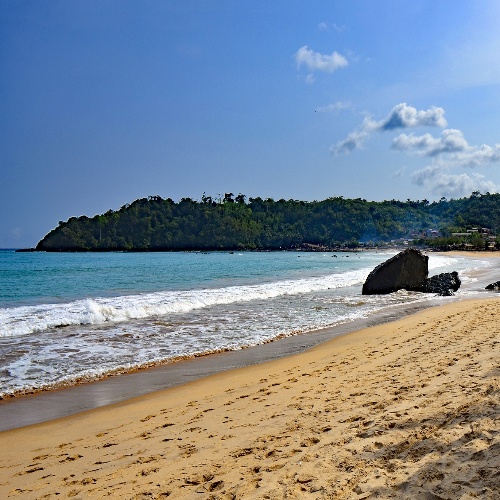
Beaches
With its beautiful beaches the coast of Ghana invites to relax. Over 500km of coastline offer several deserted beaches, for example in Elmina, Ezile Bay or Beyin.
Tourist infrastructure
The capital Accra is the starting and ending point of all international air connections; within the country, one moves by land. The transportation network in Ghana is comparatively well developed for West Africa. Road conditions can vary depending on the region. The main routes, especially along the coast, are paved. The further inland ones moeves, the more uneven the roads become.
The number of accommodations is steadily increasing, especially in the coastal area there is already a well-developed portfolio of small and medium-sized hotels and resorts. Accommodation in the interior is usually rather simple outside the larger cities.
Climate and travel season
The climate can be roughly divided into two climatic zones: the humid south with green rainforest and the dry north with tree, shrub and grass savannah. Since there are no classical seasons in Ghana, the temperature is relatively constant all year round with approx. 30°C, in the cooler months it drops by up to 5°C. Only in the north it gets warmer. Only in the north it gets warmer and temperatures rise to 40°C at the beginning of the year.
In the south, the main rainy season is between April and June, followed by the small rainy season from September to October. The north, on the other hand, has a rainy season from April to October, with the latter two months being the most pronounced.
The best time to travel are the months of the dry season. For the south this means July and August and November to April, for the north November to April.
Visa and entry
Citizens of Germany, Austria and Switzerland require a visa for the entry into Ghana, which must be applied for in good time at the responsible embassy in the respective country. All travel documents must be valid for at least six months beyond the trip.
Since the regulations can change at any time, all information are non-binding and without guarantee. Please observe the visa regulations and the current information of the Federal Foreign Office / Federal Ministry European and International Affairs / Federal Department of Foreign Affaires at all times.
Impressions from Ghana
(Click to enlarge)
Stories
International Hotel Chains Are Driving the Hotel Boom in Africa
Frankfurt, 03 April 2024 - The "Big 5" of global hotel chains - Accor, Hilton, IHG, Marriott International and Radisson ...
Internationale Hotelketten treiben den Hotelboom in Afrika voran
ReThinking Africa Initiative setzt sich für Investitionen in Afrikas Tourismuswirtschaft ein Frankfurt, 03. April 2024. Die „Big 5“ der globalen Hotelketten ...
Voice4Africa x ReThinking Africa News March
KLEBER Group x ReThinking Africa News March 2024 Content Foreword Investment in Africa's tourism industry as a driver for sustainable ...
Our partners for Ghana
Visa, Entry, and Updates
Current accessibility
Corona precautionary measures
Status: 05.10.2021



